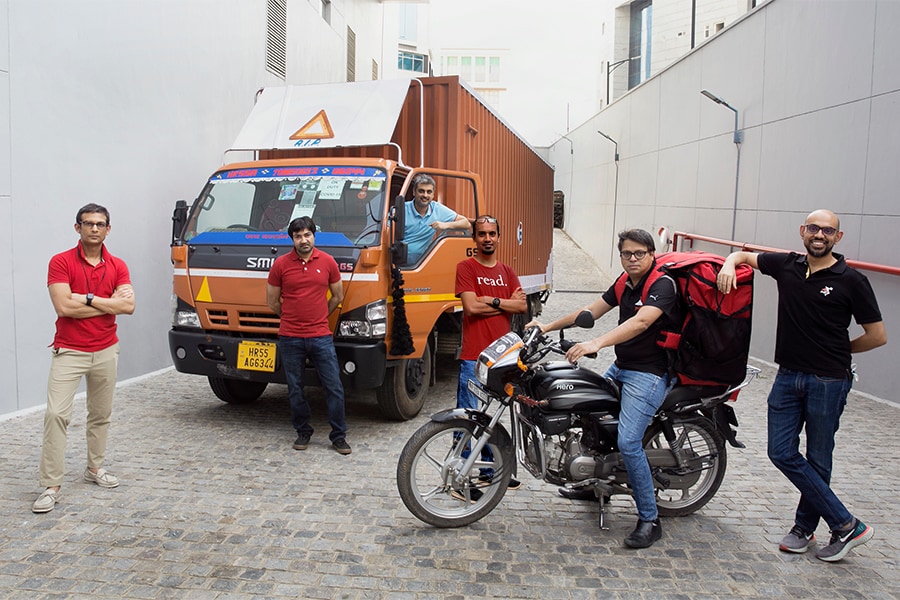
How Delhivery kept on trucking through the lockdown
The Gurugram-headquartered logistics company posted Rs 1,642 crore revenue in the March-ended fiscal 2019, and unaudited numbers for the 2020 fiscal shows a 68 percent jump—to Rs 2,760 crore

Team Delhivery: (From left) Sandeep Barasia, Mohit Tandon,Suraj Saharan, Sahil Barua, Ajith Pai and Kapil Bharati. Image: Madhu Kapparath
The routine got formalised from March 23, a day before the lockdown. Sahil Barua, cofounder of Delhivery, would religiously get on a call with 45 people from his management team, sharp at 9 am.
“Have there been any Covid-19 cases?” was invariably the first question, pertaining to the safety of his employees—over 30,000 spread across India and abroad. Over 80 days into the lockdown—and now through the gradual unlocking phase—the 9 am call is still on.
Next on the agenda is a query on operational performance. “Is the system running without any glitches? Do we have enough people? Are there new containment zones that we need to factor in?” The questions focused singularly on business.
A week later, from March 30, a new element got incorporated in the daily ritual of Barua and his core team—AMA (ask me anything) live on Facebook at 4 pm every day. The idea was to interact and know about the safety of the employees—emotional, physical and most importantly, during such tiring times, financial. “We assured everybody that their jobs are safe,” recalls Sandeep Barasia, managing director and chief business officer. “We have had no Covid-related layoffs.” This was a key element, he underlines, in driving motivation.







